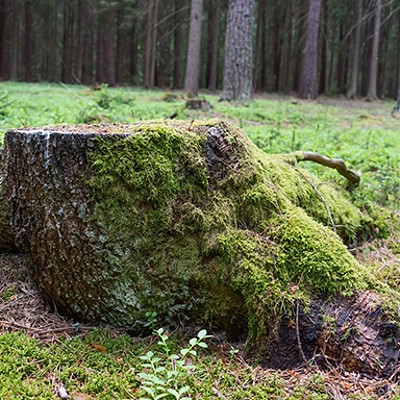Some topics, though, demand film, and Summercamp! finds one of them and films the hell out of it. The movie starts with a few scenes of children packing up for three weeks in the wilderness of Wisconsin.
Kids flock to Swift Nature Camp from all over the Lake Michigan area, hoping for a little nature and maybe the chance to beat Camp Mohawk in the yearly olympiad. Or, rather, the chance to interact with people who may be friendless, nerdy losers during the rest of the year.
As soon as the kids arrive at camp, it becomes apparent this is pure cinema, because no amount of charts, statistics or narrative writing could possibly convey the sheer exuberance, chaos, horror and fun of camp. In fact, Summercamp! doesn't even bother to develop a narrative, because it's not about that; it's about the explosive, visual force, odd speech patterns and awkward activities of a squirming, living, expanding mass of 7- to 13-year-olds let loose in the dense and sunny wilderness.
What makes Summercamp! work is that the filmmakers, Bradley Beesley and Sarah Price, just kept the cameras rolling, capturing--in both its good and bad registers--the experience of being intensely inexperienced and surrounded by hundreds of like-minded anarchists. It's like Lord of the Flies with exhausted post-teen counselors running around grilling hot dogs and serving as the objects of first love.
After about a half-hour, the film's seemingly random framework starts to come to the fore, and you wonder if anything is going to happen. But while wondering that, you watch a million things happening that really, really capture something about youth.
Because the kids are allowed to speak for themselves, you get to hear something that never occurs in Hollywood films: the actual dialogue patterns of the young, complete with odd non sequiturs, immature asides, improper looks and unpracticed gestures. It's eerily strange seeing kids act like kids, and, probably due to the fact that they had weeks in which to film them, Beesley and Price walk away with a lot of great dialogue.
Some of the kids seem like they're hyperactive 6-year-olds, while others seem like strangely shrunken 40-year-olds with unusual interests. Most notable are two recurring figures, a little girl with a strange fixation on birds, and a little boy who can't control his anger or appetite.
The girl, Holly, is a deadpan loner who spells out the word "sad" in pinecones and can't stop talking about chickadees. They are, she says, her favorite animal.
The boy, Cameron, spends half his time getting picked on, and the other half doing the kind of stuff that causes a kid to get picked on, like dumping water on another kid, throwing a beanbag at some poor child's groin and stealing a canoe so as to escape from the camp.
Seemingly of its own accord, a semi-story starts to emerge in the slow fleshing out of these kids as characters. Holly is particularly heartbreaking and compelling, and her chickadee obsession turns out to have an explanation that would have made Sigmund Freud drool with creative envy.
And Cameron, though he shows no personal growth, becomes intensely real through the repetition of his bad behavior, his weepy homesickness and his professed love for the camp where he's treated as a pariah.
So it's not quite a story that develops, but something about the basic story-worthiness of the characters comes forward, as though these children, by virtue of being so rich and unique, don't need a story, or are, in themselves, stories.
And that's the sort of thing that rarely comes across in non-documentary filmmaking, which is more concerned with laying out plot elements. It's also something that's lacking from most documentaries, which focus on information about some topic, and not on the complexities of what it is to be a person.
That those complexities are so well illustrated in the lives of people who are not yet 13 years old is weirdly riveting. If you're willing to give up on film's usual form of presentation, and allow for a conglomerate of events, beautifully filmed, and without a linear progression, Summercamp! will be richly rewarding, a reminder that what makes us what we are doesn't happen in a tale, but in the irreducible, contradictory and embarrassing array of our stumbles and falls, our running and playing, and the tiny, morally ambiguous things we do.













